Institute for European Studies
Luigi Einaudi Distinguished Lecture
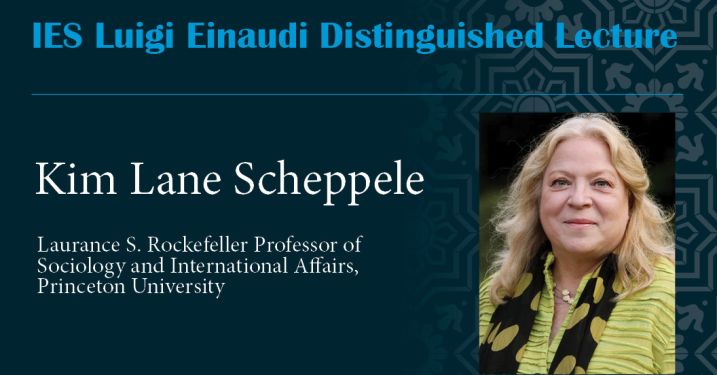
On May 2, renowned Princeton University professor Kim Lane Scheppele will deliver the Luigi Einaudi Distinguished Lecture on "Destroying Democracy by Law."
Destroying Democracy by Law
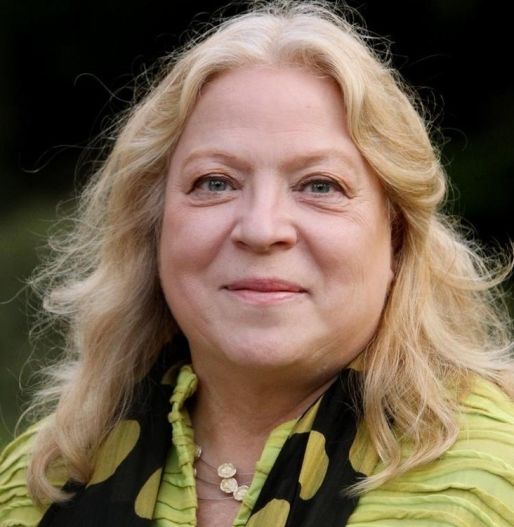
May 2, 2024
5:00 pm
Physical Sciences Building, 120
Institute for European Studies Luigi Einaudi Distinguished Lecture
Until 2005, the number of democracies in the world kept increasing, but after that date, the number has declined. Even robust democracies are now showing signs of weakness and some have turned into hybrid regimes suspended between democracy and autocracy. What is killing off the world’s democracies - and what can be done about it?
In her forthcoming book Destroying Democracy by Law, Kim Lane Scheppele explores the countries in which aspirational autocrats have undermined democracies. With examples from Hungary, Poland, Venezuela, Ecuador, Turkey, Russia, the United Kingdom, the United States and beyond, Scheppele shows how democracies no longer die with tanks in the streets. Instead, democracies die when aspirational autocrats come to power through elections and then use legal methods to undermine constraints on their power. With law as their weapon, aspirational autocrats damage the institutions that provide checks and balances, compromise the independence of the judiciary, stifle civil society, muzzle the press and use the power of the state against those who might challenge their monopoly on power. Scheppele explains how the new legal tools work, how they circulate from one budding autocracy to another and why international observers have been slow to recognize the problem. She also provides some ideas for reversing these processes through law wielded by new democratic movements.
Kim Lane Scheppele is the Laurance S. Rockefeller Professor of Sociology and International Affairs at the Princeton School of Public and International Affairs and the University Center for Human Values at Princeton University. She is also a faculty fellow at the University of Pennsylvania Law School. Her primary field is the sociology of law, and she specializes in ethnographic and archival research on courts and public institutions. She also works in sociological theory, comparative/historical sociology, political sociology, sociology of knowledge, and human rights.
Additional Information
Program
Einaudi Center for International Studies
Institute for European Studies
Global Grand Challenge: The Future

Call for Proposals to Imagine Better Future
Faculty, find out how you can join Cornell's newest challenge. The call for research and curricular proposals is now open. LOI due Feb. 26.
Assembling the Illegality Regime: Vagrancy Laws, Indentured Labor, and the Making of Migration Control in Germany
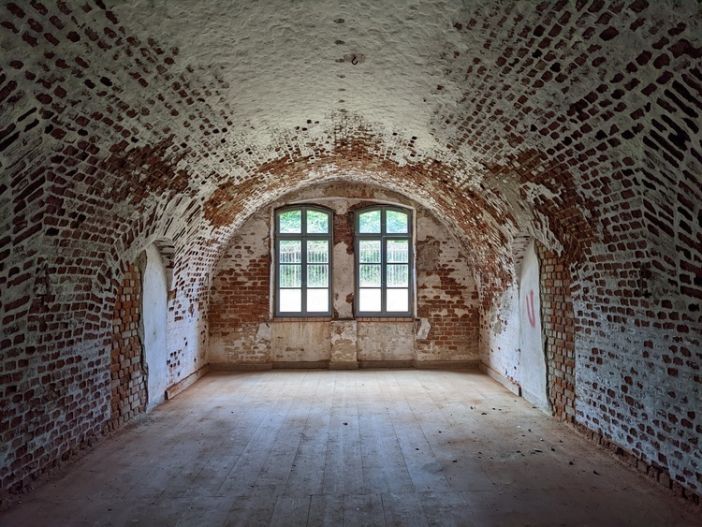
March 15, 2024
11:30 am
White Hall, 106
Today, illegality is the major frame through which societies discuss migration. While the existing literature has situated the emergence of the figure of the illegal migrant in the post-1945 era, I show that people were already criminalized as illegal in 1920s Germany. To target Jewish migrants fleeing the pogroms in present-day Poland and Ukraine, the German government built its first immigration detention camps and attempted to control its external borders and deport those that had been categorized as ‘nuisance foreigners’ – the poor, those without a job or a permanent abode, and those who had been found guilty of a crime. Through a historical case study of Germany, this paper therefore asks how states first came to render people on the move as illegal. Drawing on one year of archival research, I show how the making of migrant illegality is as much rooted in the domestic control of vagrants and Roma people as it was influenced by the transnational efforts to manage colonized labor. I argue that the entanglements of these local-subnational and global-colonial histories of mobility controls equipped the German state with the legal, bureaucratic, and enforcement capacities to define and categorize who can be excluded as an illegal migrant and to detain and deport those targeted.
About the Speaker
Sabrina Axster is a postdoctoral fellow at Cornell University’s Migration Initiative and hold a PhD in Political Science from Johns Hopkins University.
This event is part of the Department of Government's Politics, Sandwiches, and Comments workshop series.
Additional Information
Program
Einaudi Center for International Studies
Institute for European Studies
Information Session: Southeast Asia Program Undergraduate Opportunities
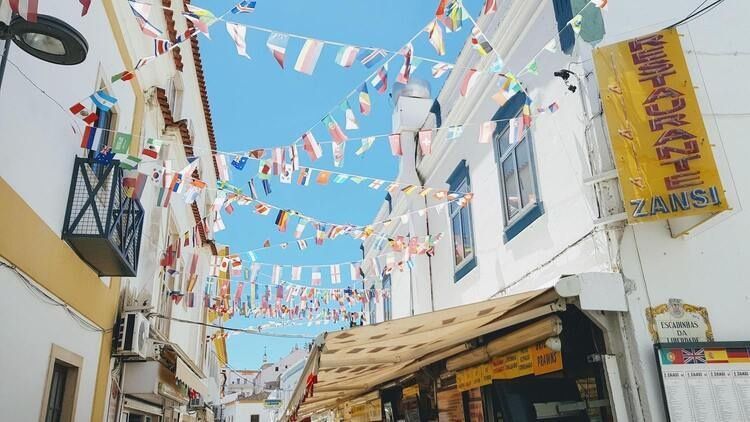
March 11, 2024
12:30 pm
Uris Hall, 153
The Southeast Asia Program (SEAP) gives students multiple ways to engage with Southeast Asia. Affiliate with our program to be informed of all SEAP events and activities. Undergraduates who minor in Southeast Asian Studies are advised by SEAP Program Faculty advisors who collaborate with them to construct a course of study based upon their area of interest. SEAP also runs the CU in Cambodia program for students interested in international travel.
Can’t attend? Contact seap@cornell.edu.
***
The Mario Einaudi Center for International Studies hosts info sessions for graduate and for undergraduate students. To learn more about funding opportunities, international travel, research, and internships, view the full calendar for spring semester sessions.
Additional Information
Program
Einaudi Center for International Studies
Reppy Institute for Peace and Conflict Studies
East Asia Program
Southeast Asia Program
Latin American and Caribbean Studies
Institute for African Development
Institute for European Studies
South Asia Program
Conference: Research Frontiers in Democratic Threats and Resilience

March 23, 2024
9:00 am
Africana Studies and Research Center
This conference brings together scholars undertaking new research on questions of democratic resistance and sources of resilience in response to global evidence of democratic backsliding.
We will work together to analyze domestic and international factors, including institutions, civil society, political parties, voters, media, and foreign policy. In an era marked by threats to democracy from within nominally democratic institutions, by elected officials, and with varying degrees of support from the voting public, we seek to understand the interactive nature of democratic threats and resistance strategies.
As democracy can be conceived of as a continued contestation over rights, responsibilities, and rules, we aim to use this critical historical moment of contestation to expand our comparative conceptions of democratic practice, strategies of endurance and deepening or weakening of democratic regimes, and the social, economic, technological, and institutional factors that contribute to varied outcomes worldwide.
Hosted by the Mario Einaudi Center for International Studies, the conference is part of Einaudi's work on democratic threats and resilience.
Register to attend the conference
***
March 22 Panels
Panel 1: Concepts and Measurement: Democracy 2.0
This panel will push beyond the measurement debates to address conceptual and ontological questions about how to measure democracy, and definitional questions at the heart of democracy’s weaknesses and promise in contemporary practice. Does the practice of a minimal definition of democracy contribute to public disenchantment, and is such practice durable?
Panel 2: Resilience Factors, Resistance Strategies, and Opposition Tactics
This panel will examine the social and economic bases of democratic resiliency, as well as various strategies, actors, and institutions that can fortify and even enhance democratic practice.
Panel 3: Stabilizing Forces? Historical Patterns and Contemporary Challenges
This panel will dissect the factors that have historically stabilized advanced industrial democracies—including party systems, modes of political representation, and patterns of capitalist development-- and their potential applicability to contemporary patterns of democratic backsliding and resistance.
March 23 Panel
Panel 4: International Actors and Regional Organizations
This panel will explore the ways in which authoritarian or democratic leaders and regimes exert influence on the regime types of other countries and the influence of regional organizations on participating countries’ regime trajectories.
Additional Information
Program
Einaudi Center for International Studies
Reppy Institute for Peace and Conflict Studies
East Asia Program
Southeast Asia Program
Latin American and Caribbean Studies
Institute for African Development
Institute for European Studies
South Asia Program
Paris Prelaw Info Session
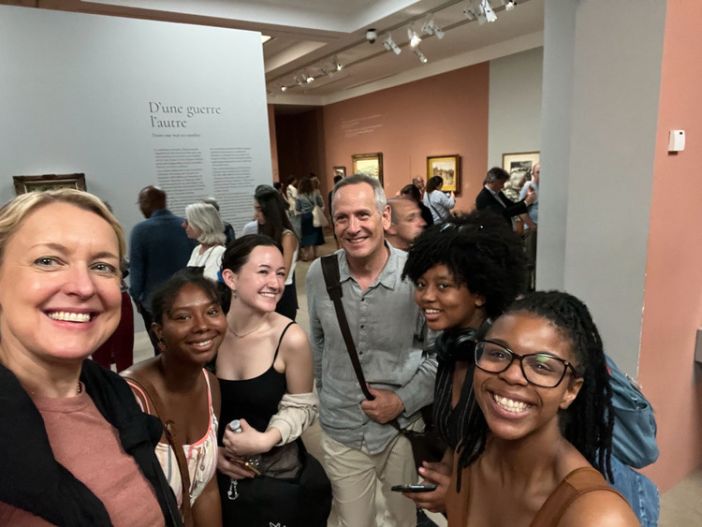
February 7, 2024
5:00 pm
Have you considered summer study abroad and are interested in studying law? Join Cornell Law School faculty and the Office of Global Learning to learn more about the Cornell Prelaw Program in Paris, a three-week academic program in international and comparative law. Study law in a uniquely international and culturally rich environment, combining the excellence of Cornell Law School faculty and the Université Paris I Panthéon-Sorbonne. Prepare for the law school admissions process and acquire the study skills for success in law school.
Additional Information
Program
Institute for European Studies
Cornell Summer Public Policy Program in Turin Info Session
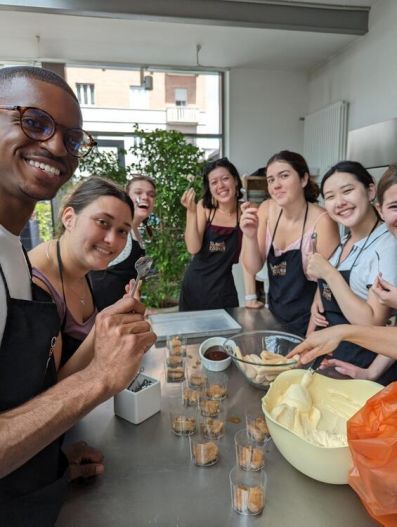
February 6, 2024
4:30 pm
Martha Van Rensselaer Hall, 1429
Find out more about our summer public policy program in Turin. Nestled between the Alps and the Mediterranean in the magnificent Piedmont region of northern Italy, the city of Turin provides an inspiring background to explore the causes and consequences of population change, the debates unfolding in Europe around these issues, and the policies intended to address them. Population problems are central to societal change in numerous areas- inequality, immigration and diversity, race relations, family life, health and aging, and social welfare systems. This program explores the causes and consequences of population change, paying particular attention to how population processes interact with the social, economic, and political context in which they play out.
Additional Information
Program
Institute for European Studies
Summer Program in Madrid Info Session
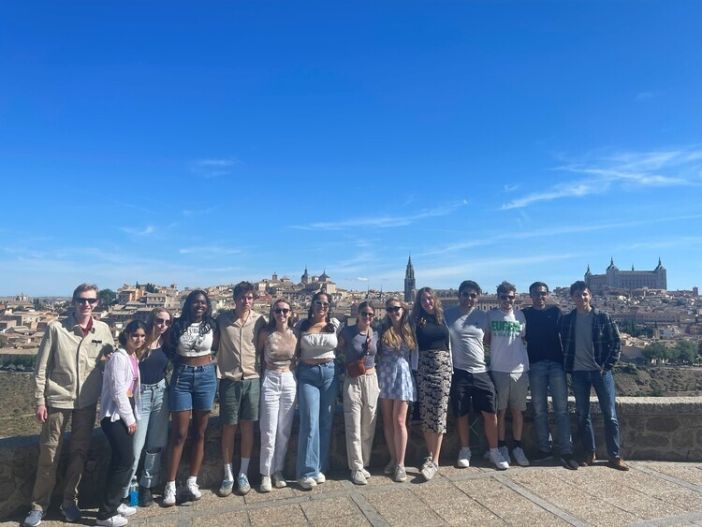
January 31, 2024
4:30 pm
Klarman Hall, Romance Studies Lounge (164)
Looking to level up your Spanish? Come learn more about Cornell's intensive six-week program in Madrid. You'll immerse yourself in Spanish culture, significantly improve your language skills, and earn credits while living in Spain’s capital city. Along with a focus on improving their Spanish speaking and writing skills, many students take a course on Spanish culture and history that offers a broad introduction to Iberian cultures from the Middle Ages to the present.
Additional Information
Program
Institute for European Studies
Ida Danewid: Resisting Racial Capitalism
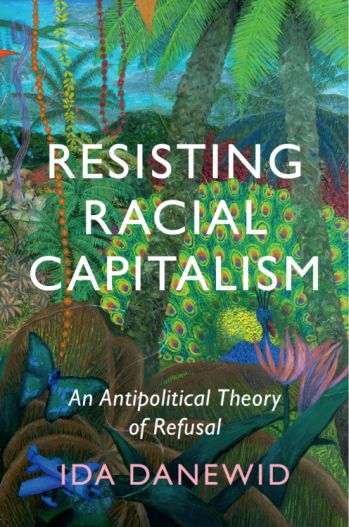
March 18, 2024
12:00 pm
What does freedom mean without, and despite, the state? In her new book, Resisting Racial Capitalism: An Antipolitical Theory of Refusal, Ida Danewid argues that state power is central to racial capitalism's violent regimes of extraction and accumulation. Tracing the global histories of four technologies of state violence: policing, bordering, wastelanding, and reproductive control, she excavates an antipolitical archive of anarchism that stretches from the favelas of Rio de Janeiro to the borderlands of Europe, the poisoned landscape of Ogoniland, and the queer lifeworlds of Delhi.
Thinking with a rich set of scholars, organisers, and otherworldy dreamers, Danewid theorises these modes of refusal as a utopian worldmaking project which seeks not just better ways of being governed, but an end to governance in its entirety. In a time where the state remains hegemonic across the Left–Right political spectrum, Resisting Racial Capitalism calls on us to dream bolder and better in order to (un)build the world anew.
Register in advance to attend!
About the Speaker
Ida Danewid is a social and political theorist based in the Department of International Relations at the University of Sussex.
About the Moderator
Oumar Ba is an Assistant Professor in the Department of Government at Cornell University. His primary areas of research focus on law, violence, race, humanity, and world order(s) in global politics.
Host and Sponsors
This event is hosted by the Migrations initiative, part of Global Cornell.
Additional Information
Program
Einaudi Center for International Studies
Institute for European Studies
